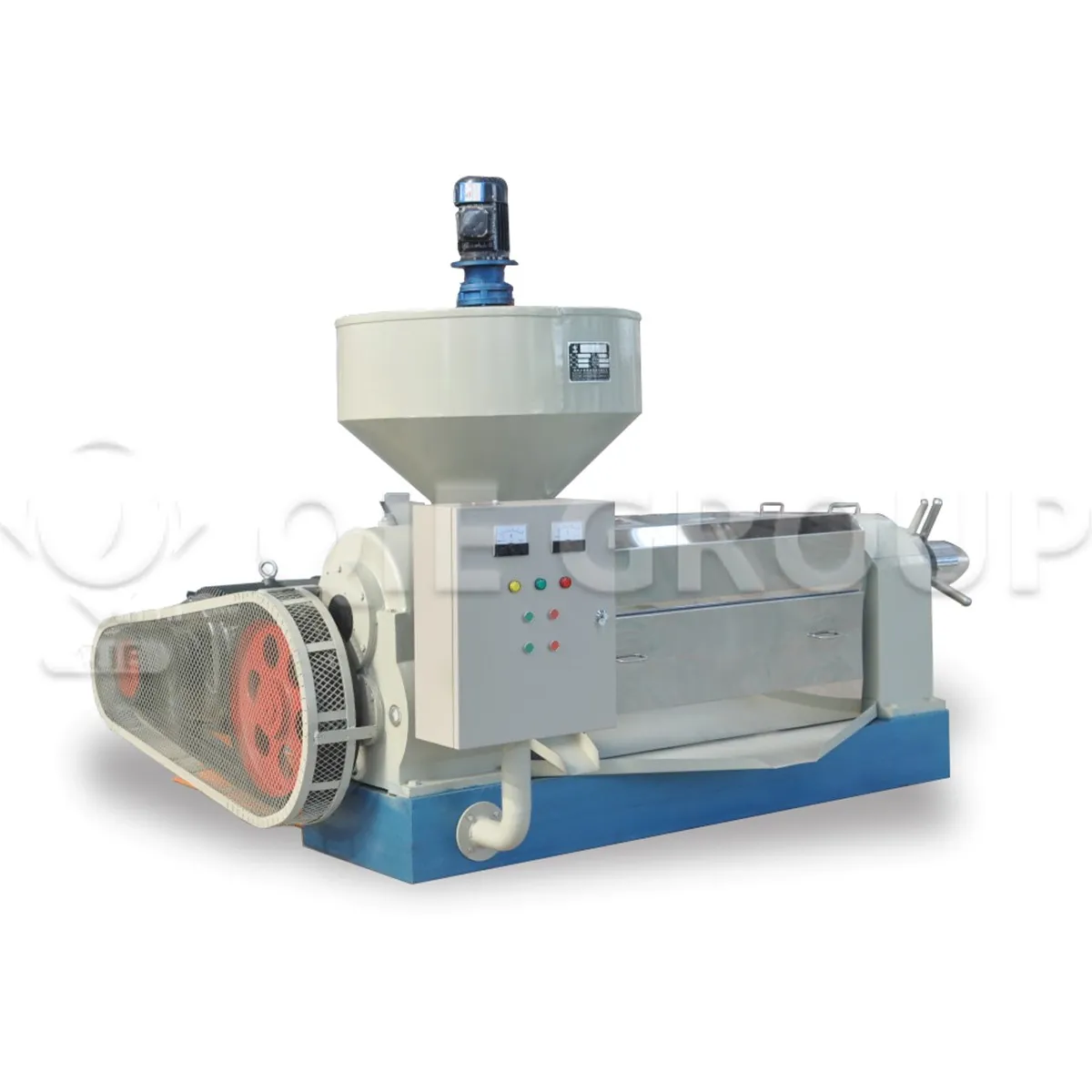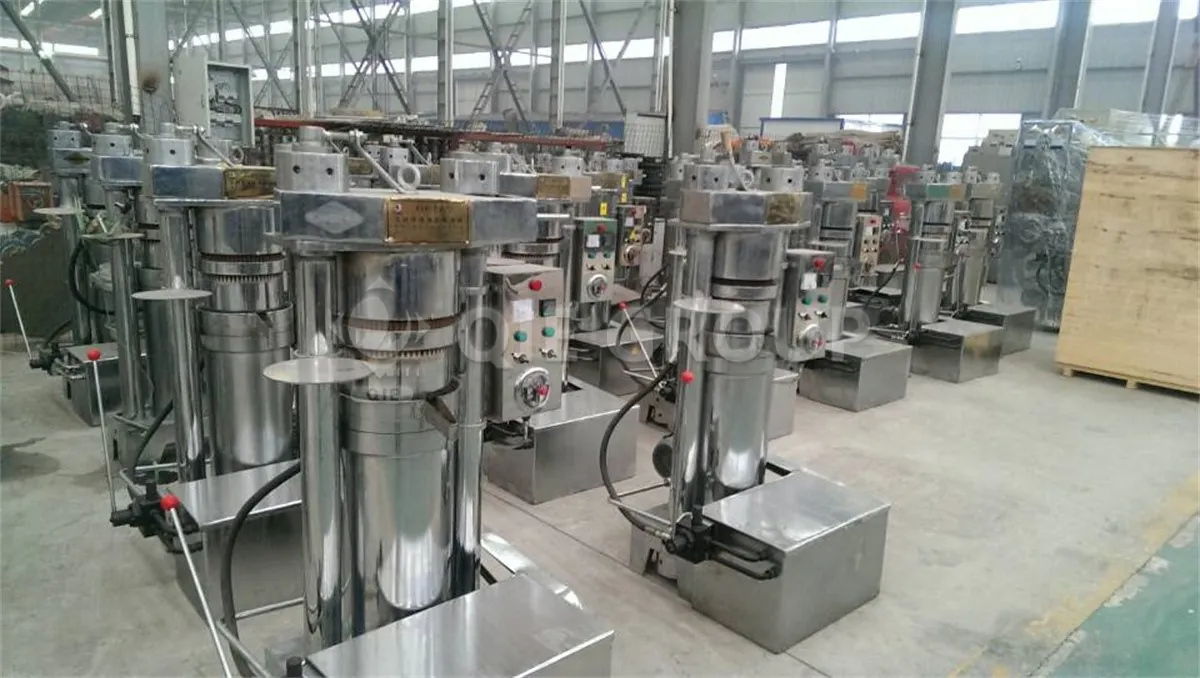With the growing popularity of healthy eating concepts, sunflower oil, rich in unsaturated fatty acids and vitamin E, has become the preferred choice for a growing number of consumers. However, the quality of sunflower oil on the market varies widely. How can we produce high-quality sunflower oil through scientific production processes and high-quality pressing equipment? QIE Group will explain how to produce high-quality sunflower oil through scientific equipment selection and process optimization.
At present, the mainstream production of sunflower oil is still physical pressing, in which the selection of equipment is crucial to the oil yield, oil purity and nutrient retention. The mainstream pressing equipment on the market is mainly divided into two categories:
Screw presses are suitable for medium-to-large oil mills with daily processing capacities of 5 tons or more. Operating in a continuous mode, they feature low energy consumption and high oil yields, with residual oil rates generally controlled at around 5%. Our screw presses utilize a strip-shaped design that not only effectively reduces cake breakage but also enhances solvent penetration during the extraction phase, increasing overall oil extraction yield. Furthermore, an intelligent temperature control system helps maintain the optimal pressing temperature, preventing high-temperature oxidation and ensuring the freshness and stability of the oil.

For small-batch users seeking superior quality, the hydraulic oil press, with its cold-pressing advantages, is the preferred choice for the high-end market. Its high-pressure extraction yields purer oils, making it particularly suitable for producing organic sunflower oil or virgin oil. The low-temperature operation of the hydraulic press preserves the oil's natural flavor, resulting in a lighter color and greater antioxidant stability, making it highly sought after in the health and premium markets.
Want to know the specific differences between the two types of equipment in terms of structure, oil yield, and applicable processes? 👉What is the difference between a screw oil press and a hydraulic oil press?

| Key factors | Detailed analysis | Recommended indicators |
|---|---|---|
| Raw material quality | Sunflower seeds are mature, have an oil content of 40% to 50%, and are free of mold. The accuracy of cleaning, shelling, and crushing during the pre-processing phase directly affects the final oil yield and purity. | Moisture content controlled at 6%–8%; no impurities or mildew |
| Pressing temperature control | Cold pressing keeps the temperature below 60°C, which helps to preserve the nutrients and natural antioxidants in the oil to the greatest extent possible. Although hot pressing increases the oil yield, excessively high temperatures can easily cause oil oxidation, affecting quality. | Cold pressing ≤ 60℃, hot pressing strictly controlled temperature |
| Balance between oil yield and residual oil rate | By rationally regulating pressing pressure, operation time and auxiliary heating system, high oil yield is achieved while ensuring oil product stability, and the residual oil rate is controlled at an advanced level in the industry. | Residual oil rate ≤5%, oil yield increased by 2%–3% |
The production of high-quality sunflower oil does not rely on a single piece of equipment, but rather on the coordinated optimization of an entire process. QIE Group recommends starting with the following three systems:
This process includes equipment such as cleaning screens, magnetic separators, stoners, shellers, embryo presses, and steaming and frying pans. This process not only ensures the cleanliness of the raw materials and efficiently removes impurities, but also increases the oil release rate by destroying the cell structure; the low-temperature steaming and frying process is particularly effective in preserving nutrients and oil quality.
Flexible selection of screw oil press or hydraulic oil press according to customer needs, equipped with intelligent monitoring system to achieve real-time digital management of key parameters such as temperature, pressure, time and output, ensuring a stable and efficient production process.
Through multiple refining processes, including degumming, deacidification, decolorization, deodorization, and dewaxing, we effectively enhance the transparency, stability, and taste of the oil, meeting the stringent requirements of the high-end market for purity, safety, and nutrition. We offer sunflower oil refining equipment, ranging from batch, semi-continuous, to fully continuous, to meet the production needs of customers of varying sizes.
With over 40 years of experience in the edible oil machinery manufacturing industry, our equipment is ISO-certified and exported to over 100 countries and regions. Our sunflower oil presses offer high oil yields, low energy consumption, and intelligent control, making them widely used in the processing of sunflower seeds, peanuts, soybeans, flaxseed, and other oilseeds. In addition to hardware supply, we also focus on process design, equipment customization, installation and commissioning, and technical training, helping customers build intelligent, efficient, and high-quality sunflower oil production lines.
Question 1: How to determine whether sunflower seeds are suitable for pressing?
→ Sunflower seeds with plump, uniform color, and moderate moisture content are most suitable for pressing. If the raw materials are moldy or contain high levels of impurities, the oil quality will be directly affected.
Question 2: Why is cold-pressed oil lighter in color?
→ Because the temperature is lower during the cold pressing process, less pigments, phospholipids and impurities are dissolved, and the oil is clearer and more transparent.
Question 3: What are the techniques to increase oil yield?
→ Control the steaming temperature and time to achieve moderate protein denaturation; maintain a stable pressing chamber temperature; and use double-screw continuous pressing to increase the oil extraction rate by about 2–3%.
Want to learn about a sunflower oil pressing solution tailored to your plant? Contact QIE Group's engineering team today for personalized equipment configuration and process design advice.









